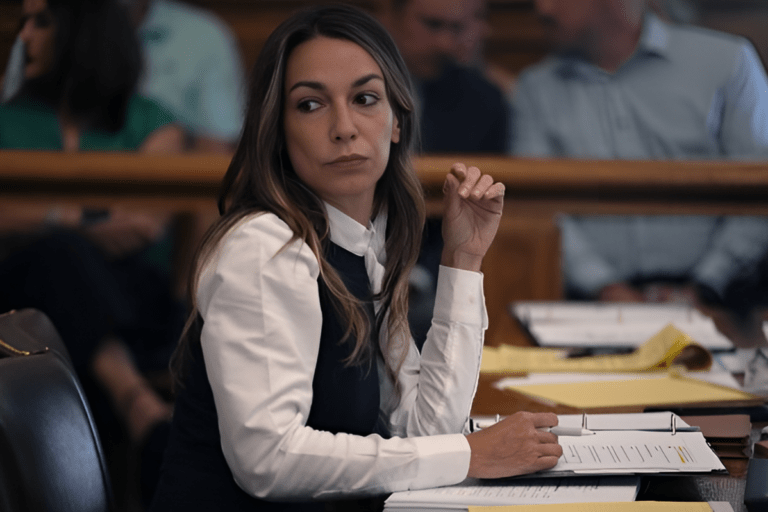A significant development occurred during Karen Read’s retrial. Judge Beverly Cannone granted the prosecution access to new evidence from print and TV interviews. The evidence concerns the materials from interviews conducted with Read and her family. They will not be redacted when provided to prosecutors, which may be crucial to the present proceedings.
Background of the Case
Karen Read faces charges of second-degree murder, vehicular manslaughter while intoxicated, and leaving the scene of a fatal collision. She is charged with fatally hitting her boyfriend, Boston Police Officer John O’Keefe, with her car in January 2022. The defense argues that Read is a victim of a cover-up, claiming O’Keefe was assaulted at a party and evidence was manipulated to implicate her.
Prosecution’s Request for Interview Materials
The prosecution requested unredacted audio recordings, notes, and text messages from a series of 2023 interviews Read gave to Boston Magazine. They also sought unedited footage from a WFXT interview with Read’s parents, William and Janet Read. Special prosecutor Hank Brennan said these materials are crucial in exposing inconsistencies in Read’s accounts over time. He continued that the original audio, provided for a Boston Magazine interview, was over 75% redacted, depriving prosecutors of the chance to assess the context of Read’s statements.
Defense’s Position on the Motion
An attorney representing the Boston Magazine reporter stated that he did not agree with the motion. He stressed that a similar request was denied before the first trial started. The defense explained that no compelling reason to revisit the motion was presented on behalf of the prosecution. The defense argued that the decision could invade journalistic privileges and undermine a reporter’s need to protect sources.
Judge’s Ruling and Its Implications
Judge Cannone agreed with the prosecution’s motion, but state law does not offer a privilege for news reporters to withhold such materials. She explained the difference between protecting confidential sources’ identities and revealing if known individuals made statements, especially those at the center of a criminal case. The ruling lets the prosecution review the complete, unredacted interview materials necessary to assess Read’s account and any changes in her story.
Upcoming Proceedings and Trial Schedule
As a result of this ruling, the retrial, previously scheduled for January 27, 2025, will be delayed. The prosecution and defense requested a postponement to April 1, 2025, allowing time for preparation and a more efficient presentation of evidence. Special prosecutor Brennan said the extra time would narrow the witness list, leading to a more streamlined trial. Judge Cannone granted the postponement and instructed the parties to propose a new scheduling order for the next court session.
Public and Media Interest
The case of Karen Read has garnered widespread public attention, media coverage, and discussion. Allegations of a cover-up, concerns over evidence handling, debates on wrongful accusations, and when gross negligence becomes a crime persist. Around the time of the retrial, these recent court decisions will likely significantly influence public perception and media narratives.
The upcoming trial will focus on the evidence and arguments from both sides, with the recently published interview materials central to the prosecution’s strategy.

